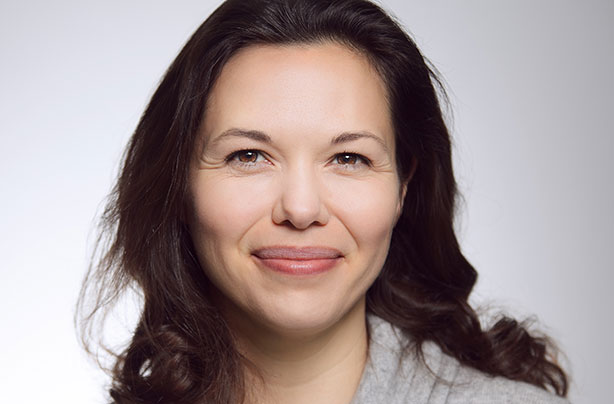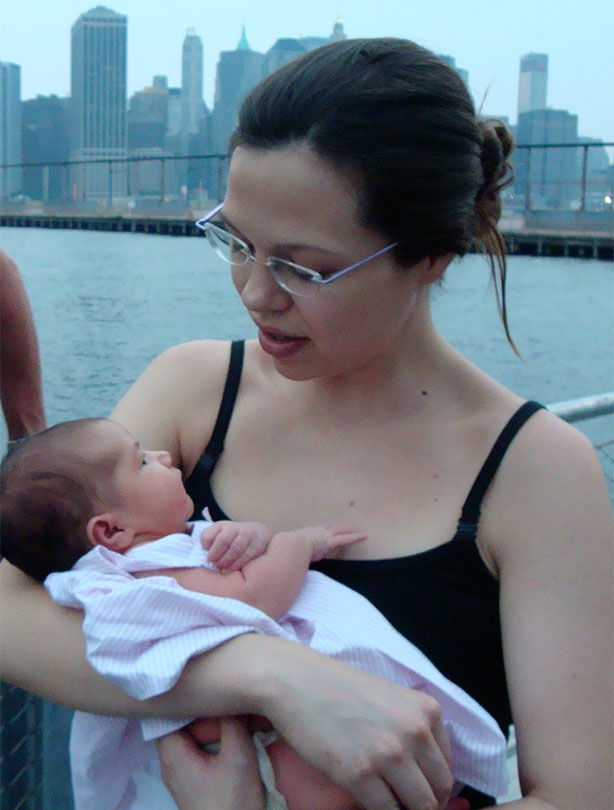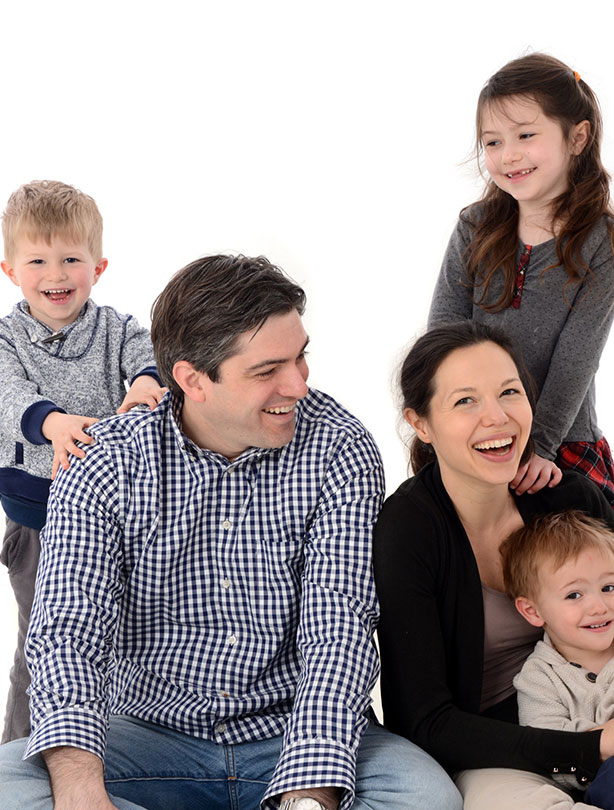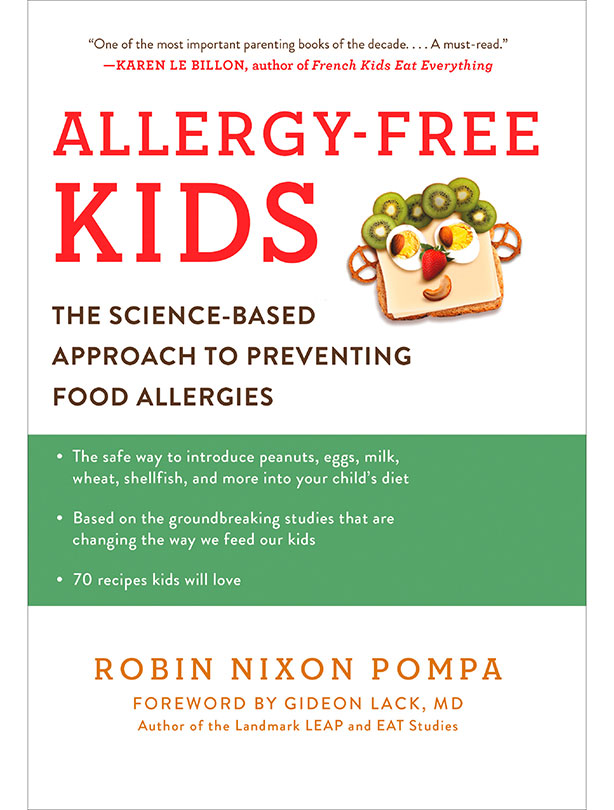Mum-of-three reveals how she managed to free her daughter of food allergies
'I spluttered and argued – until he helped me understand the science behind it'

Food allergies are becoming increasingly common - but when you're the parent of a child with a food allergy, that doesn't make them any less of a concern.
According to Allergy UK, the cases of food allergies have doubled in the last decade, and now almost 1 in 5 (17%) of the UK population consider themselves to have a food allergy or intolerance.
Some people discover their food allergy symptoms later in life, but Robin Nixon Pompa's daughter Clara exhibited them almost as soon as she was born.
However, after a chance meeting with a researcher led her down a path of discovery, and eventually led to her little girl becoming food-allergy free. Here, she shares their amazing story...
Six years ago, when my little girl was a baby, I had her on my lap while I ate brunch with my husband.
She seemed interested in my scrambled eggs. Amused and eager to please, I gave her a bite.
Her face immediately swelled into a puffy red balloon.
GoodtoKnow Newsletter
Parenting advice, hot topics, best buys and family finance tips delivered straight to your inbox.
We called emergency services, afraid her airways would constrict, and I assumed her minutes were numbered. Fortunately, my husband, who has experience with allergies, kept me calm.
In a few hours, her face was back to normal. But, in that moment, Clara had become part of the growing statistic of children with severe food allergies. Six to eight percent of children now have proven food allergies and in roughly the last decade the number of hospital admissions for severe allergic reactions in children has increased seven-fold. Terrified of losing our baby to anaphylaxis, we sought a recommendation to an allergist.
By chance, we ended up in the waiting room of Dr. Gideon Lack, a clinical researcher on the verge of a breakthrough in food allergy understanding and prevention.

Image: William Pompa Jr
Robin with Clara when she was just 10 days old
Before we met with him, his nurse did a skin-prick test on Clara's arm to nearly a dozen common allergens. This isn't as painful as it sounds. It involved the nurse labeling Clara's arm with a pen, placing liquid drops of allergens near the labels and then gently 'popping' the drops with a needle to let a minuscule amount of the allergen enter the skin.
Poor Clara. Not only did the egg test swell into an itchy welt, but the tests for Brazil nuts, macadamia nuts, pistachios, cashews, almonds and hazelnuts also became red, raised and sore. The nurse told me that Clara might grow out of the egg allergy but the nut allergies were for life. She taught me how to use an Epi Pen. And advised me to tell schools and friends that Clara was allergic to all nuts, even though there were four (pecan, walnut, pine nut and peanut) that were safe.
My head began swirling with this new info. I imagined the instructions we'd have to give if she ever went to a friend's house or birthday party, passing out Epi Pens to teachers and other parents. I also imagined the life-long deprivations. I consider food one of life's greatest pleasures, and now my adorable little girl not only would never, ever taste Nutella, white chocolate macadamia nut cookies, marzipan, many fragrant Asian dishes or the delight of a salted cashew, but would have to worry about accidentally dying at nearly every visit to a restaurant.
Mired within these thoughts, I let the nurse lead Clara and I into the doctor's office. Dr. Lack's words jarred me back to clarity with a shock. He said to give Clara a daily dose of nuts and eggs!
I spluttered and argued – until he helped me understand the science behind it.

Image: Pret a Portrait/Robin Pompa
Robin with her husband William and their three children Clara, Grant and Arthur
The immune system needs to be taught, in a safe way, that all foods are fine to eat. The best way to "educate" the immune system is likely different for every patient, and impossible for many, so I strongly recommend partnering with a doctor. The sooner, the better: The younger the child, the more likely his immune system will be amenable to course correction.
In Clara's case, Dr. Lack advised me to make a cake with just one egg and to give Clara one-twentieth of it every day. After a couple months of making one-egg cakes, I started making cakes with two eggs and again gave one-twentieth of it everyday. We kept going this way for over a year, with slow incremental adjustments, until I was looking for recipes for a ten-egg cake! I gave her another bite of scrambled eggs instead. She liked them this time – and so did her immune system.
To combat her nut allergies, we gave Clara her four safe nuts, ground smooth, everyday. And when she was 2 years old, she was tested again, by blood, skin prick and food challenge tests, and we found that she was now allergy-free!
She now eats a nut butter made by combining all nuts, including the six to which she previously had life-threatening allergies, spread on crackers nearly every day after school. And she has eggs, usually hidden in pancakes or French toast, twice a week. This approach is expected to give Clara the greatest protection against seeing her food allergies return.
The latest science suggests babies can be protected from allergy development in the first place, by introducing them to potential allergenic foods in infancy. With Dr. Lack's guidance, I introduced Clara's two younger brothers to all tree nuts, peanuts, eggs, kiwi, sesame, wheat and diary between 3 and 5 months old.
Despite some hive outbreaks, for which I again sought medical guidance, I have continued offering these foods regularly, experimenting with different preparations when my kids lose interest. And now with a 2-year-old, a 4-year-old and a 6-year-old on my hands, I am indescribably relieved and grateful to have a food allergy-free household.

Robin Nixon Pompa is the author of Allergy-Free Kids, available from 18th May on Amazon
Note: Every patient is different and therefore should seek the advice of a doctor if trying to desensitise. If you or your child is exhibiting signs of food allergy, speak to your physician or an allergen specialist to investigate possible options that are safe and will suit your requirements.
Trusted, informative, and empathetic – GoodToKnow is the ultimate online destination for parents. At GoodtoKnow, our mission is 'simple': we're trying to make sense of parenthood. On the site, you'll find everything you need for a happy, healthy family life. Our huge archive of content includes more than 18,000 articles and 1,500 how-to videos. These include expert-backed advice features on parenting, dealing with relationship changes after having a baby, self-care for mums and managing your family finances. We also feature tried-and-tested product reviews and buying recommendations for every stage of family life - from prams and Moses baskets to birthday gifts and top toys.